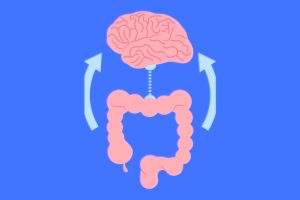As of 2019, approximately 4.9 million people worldwide were living with inflammatory bowel diseases (IBD), such as Crohn’s disease. Scientists have yet to determine the exact cause of Crohn’s disease, a chronic autoimmune condition that inflames the digestive tract.
Researchers from the Technical University of Munich have recently conducted a study using a mouse model that suggests Crohn’s disease may be triggered by mitochondrial disruption, leading to alterations in the gut microbiome. Their findings were published in the journal Cell Host & Microbe.
Mitochondrial Dysfunction and Intestinal Tissue Damage
In this study, researchers disrupted mitochondrial function in mice by deleting a specific gene segment responsible for producing the protein Hsp60, which is essential for proper mitochondrial performance. This disruption caused damage to the intestinal epithelium, a tissue lining the inside of the intestine, similar to the injuries observed in humans with Crohn’s disease. Additionally, the researchers noted changes in the microbiome composition of the mice due to mitochondrial dysfunction.
The study demonstrated for the first time that mitochondrial disturbances are causally linked to intestinal tissue damage and disease-related shifts in the gut microbiome.
Potential for New Crohn’s Disease Treatments
These findings open the door to potential new treatments for Crohn’s disease, which currently focus primarily on symptom alleviation. Dirk Haller, PhD, chair of Nutrition and Immunology and director of the Corporate Research Institute, Food and Health (ZIEL) at the Technical University of Munich, and lead author of the study, expressed hope that future treatments could restore the functionality of disrupted mitochondria. This could limit intestinal damage and chronic inflammation processes. Haller suggests that drugs targeting mitochondrial pathways or the connection between the microbiome and mitochondria could be key to more effective treatments.
Human Research Needed
Rudolph Bedford, MD, a board-certified gastroenterologist at Providence Saint John’s Health Center in Santa Monica, CA, commented that the study might have pinpointed the cause of Crohn’s disease and possibly ulcerative colitis or IBD in general. Current treatments for Crohn’s disease mainly suppress the immune system or reduce inflammation, but targeting the mitochondrial mechanism could refine drug therapy. Bedford emphasized the importance of testing these findings in human models to explore potential drug therapies that could reverse mitochondrial dysfunction-induced intestinal inflammation.
Mitochondrial Dysfunction: A Key to Effective Treatments
Rosario Ligresti, MD, FASGE, a gastroenterologist at Hackensack University Medical Center in New Jersey, noted that understanding mitochondrial dysfunction in Crohn’s disease is crucial for developing more effective treatments. This research enhances our understanding of the disease’s underlying mechanisms, potentially leading to better diagnosis and treatment strategies. Ligresti highlighted that mitochondria are vital for cellular energy production, metabolism, and immune response. By targeting mitochondrial dysfunction, researchers could develop therapies addressing the disease’s root cause rather than just managing symptoms.
Personalized Medicine and Broader Implications
Ligresti also pointed out that studying mitochondrial dysfunction could lead to personalized medicine approaches for Crohn’s disease, tailoring treatments based on individual mitochondrial profiles and genetic makeup. This research might have broader implications for understanding other inflammatory and autoimmune diseases, as mitochondrial dysfunction is increasingly recognized as a common factor in these conditions.
Importance of Identifying Triggers
Identifying potential triggers of Crohn’s disease is essential for preventive measures, which could reduce the number of new cases. Understanding these triggers could lead to lifestyle, dietary, or environmental interventions. Awareness of potential triggers might help individuals at risk to seek early diagnosis and treatment, preventing disease progression and severe complications. This knowledge is invaluable for developing more effective treatments and potentially finding a cure for Crohn’s disease.




